
Shining Light on Producers’ Ambitions and Personality: Harnessing Power of Community to Change World
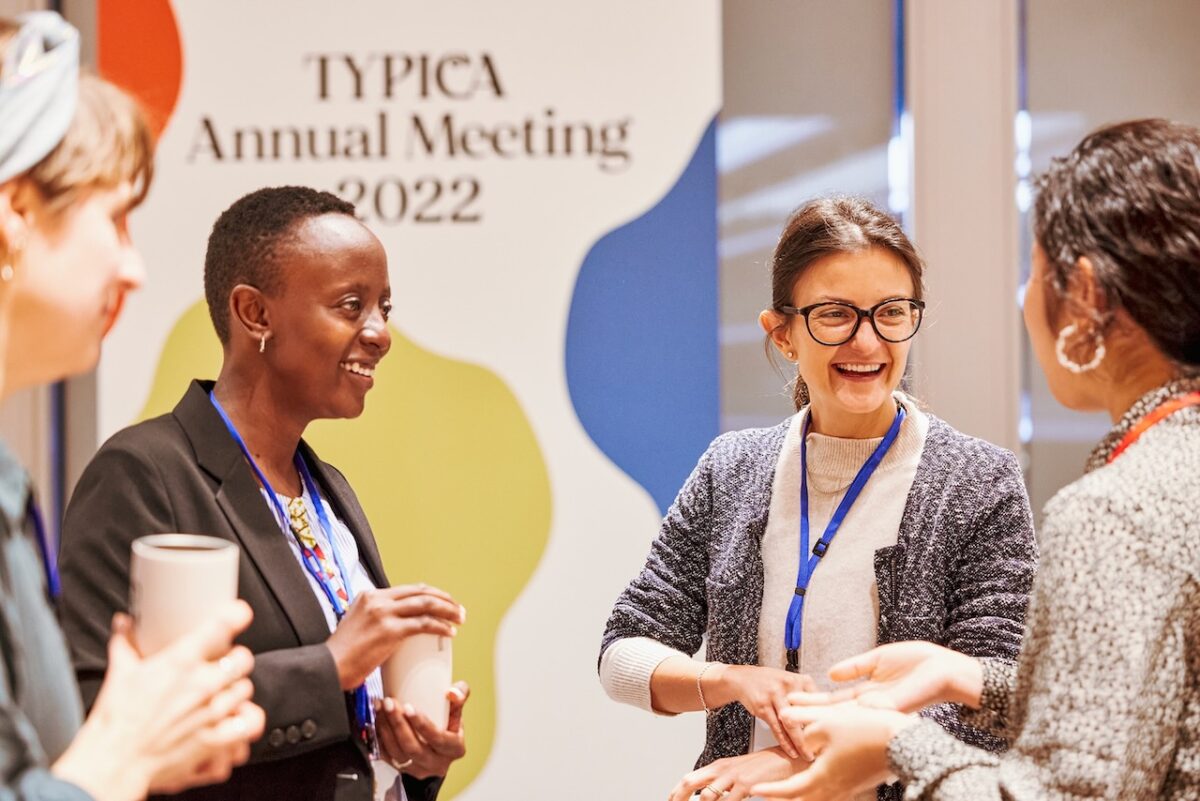
Day 2 of TYPICA Annual Meeting took place at Toranomon Hills Forum in Tokyo on October 11. The event attracted around 200 participants, including coffee producers, roasters, and various others in the coffee industry. During the Producer Award, which featured presentations by coffee producers, 18 presenters shared their passion for coffee, vision for the future, and plans to achieve that. At the end of the gathering, attendees of different nationalities, languages, and professions deepened relationships at the Community Dinner banquet.
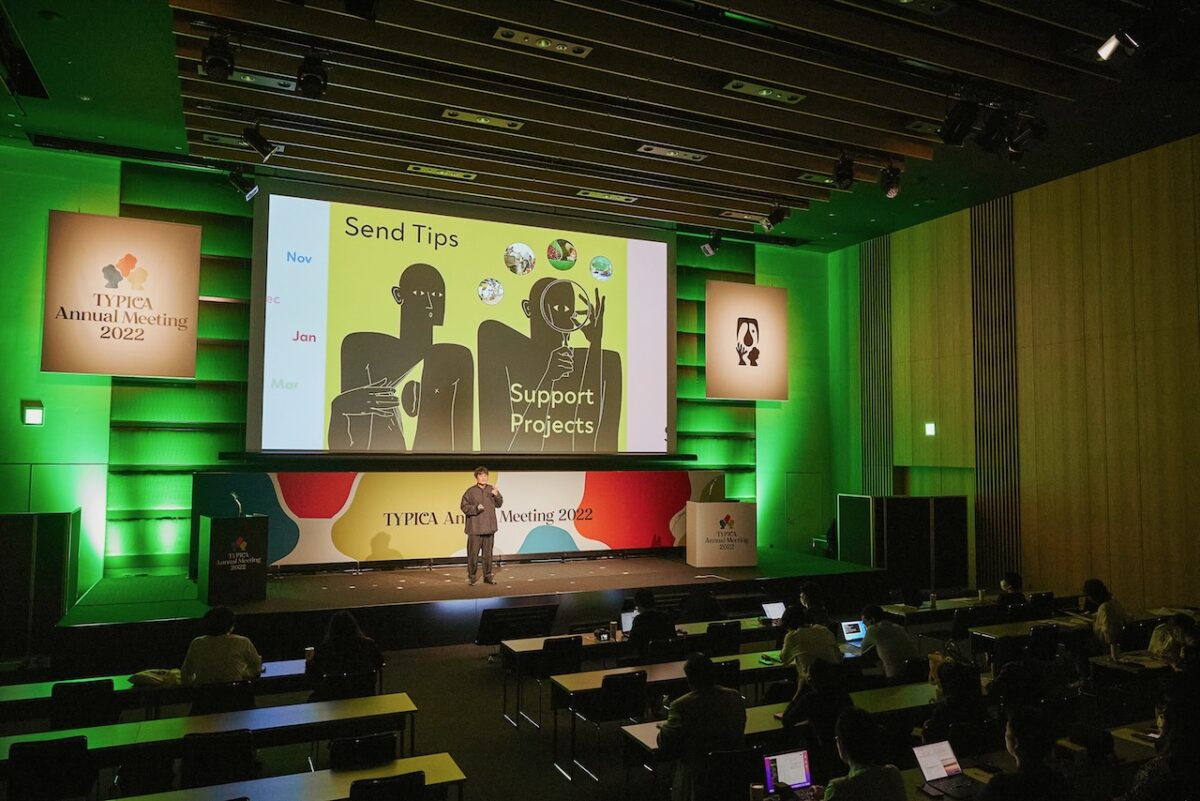
Three years into its founding, TYPICA provides services to coffee producers in 32 countries and roasters in 39 countries and territories. The company’s uniqueness lies in the fact that its core aim is to create a community of coffee producers, roasters, and consumers.
During a kick-off presentation, which was opened to the press, TYPICA revealed details of the soon-to-be-launched “It’s a New Wave” campaign. In the announcement, TYPICA unveiled plans to expand its B-to-B specialized business model to B-to-C.
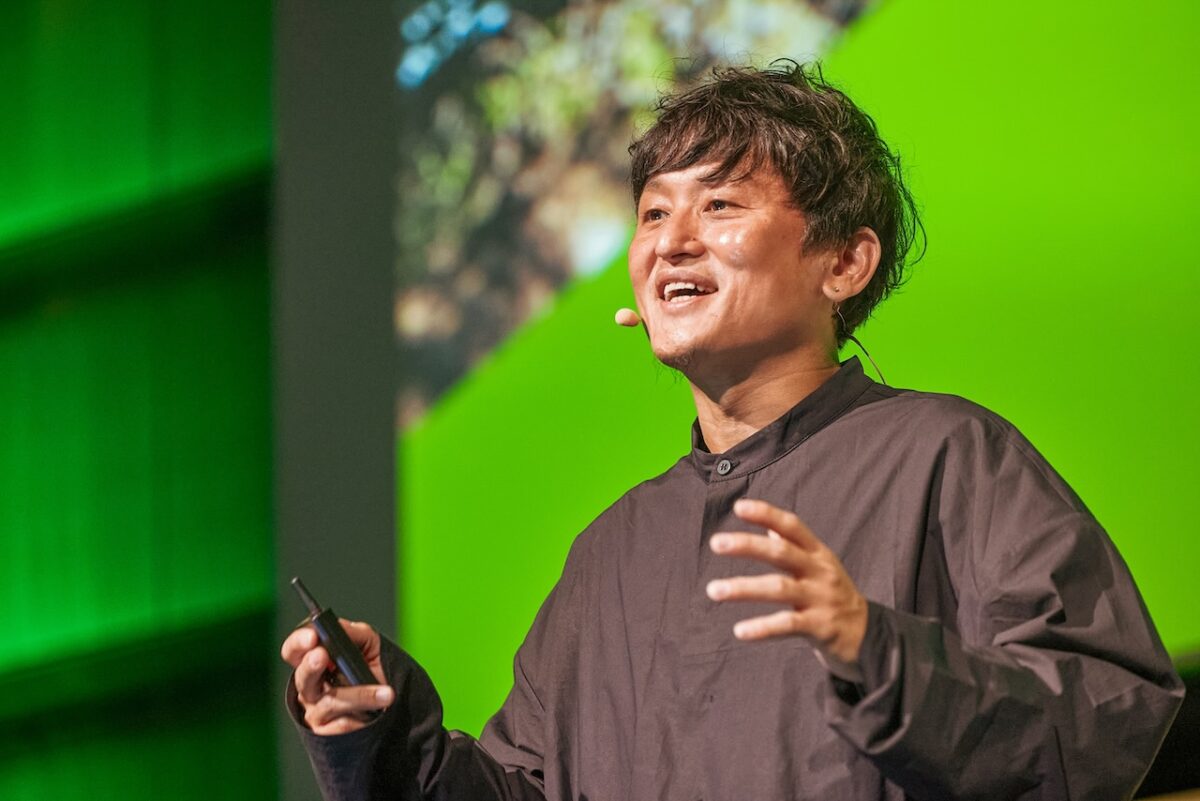
Specifically, TYPICA will launch several new projects back-to-back. First of all, the company will start “TYPICA CLUB”, a monthly subscription service that delivers a seasonal coffee every month, with full clarity about the producer behind it. Another new initiative is Culture Pairing Pop-up. It features collaborations between roasters and various establishments in all 47 prefectures of Japan. Through these pop-up events, TYPICA seeks to offer people in wider areas a taste of direct-trade seasonal coffee. Also in the works is the OKAGESAMA project and TYPICA GUIDE. OKAGESAMA is a community-based greening project where coffee lovers gather in coffee origins to plant shade trees. TYPICA GUIDE, meanwhile, is a virtual guide service that introduces people to truly delicious coffee. For more details, check out official pages.
In a passionate speech, co-founder Masashi Goto said he wants to share the same vision for the future, and as a united community, explore the possibility of changing the industry, society, and the world. Explaining the motive behind the Producer Award, Goto said competitions for coffee producers have focused on the taste of coffee, but not on their own personal history and their personality as an individual. He stressed that this is probably the first such contest ever.

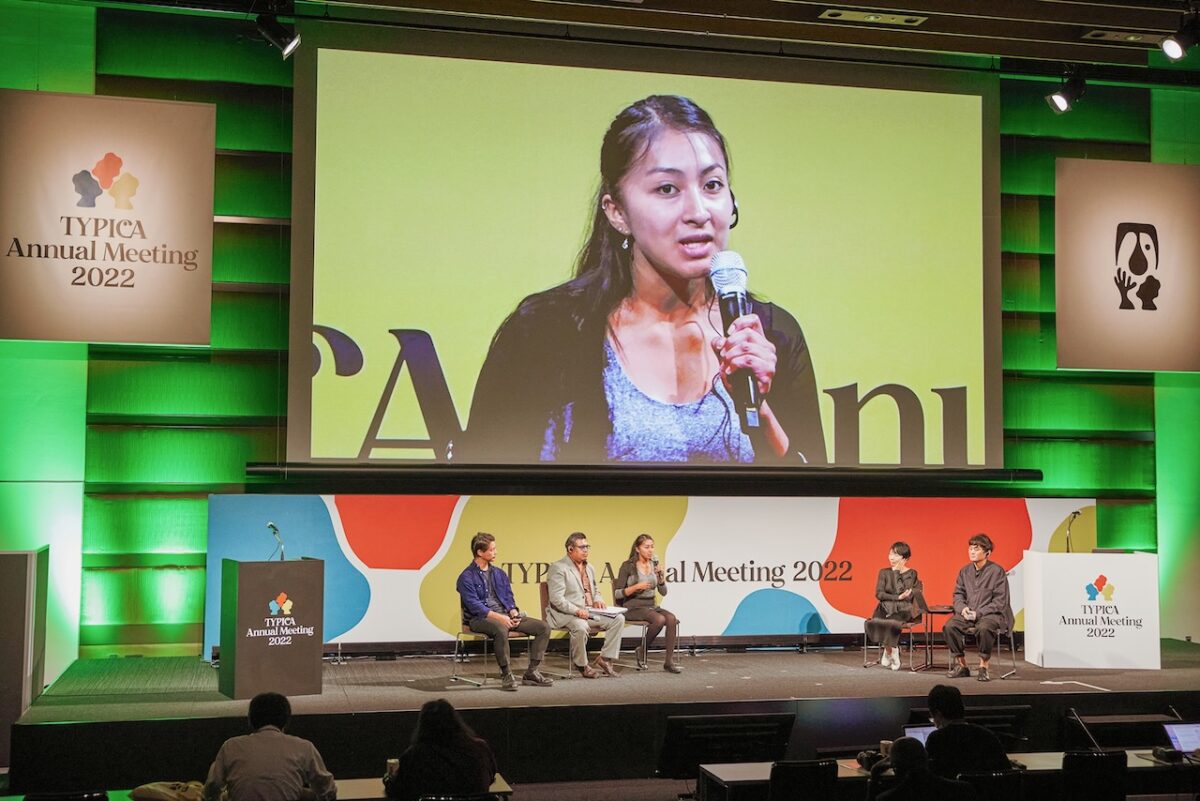
After Goto’s speech ensued a panel discussion by Bolivian coffee producers, a roaster who serves Bolivian coffee, and TYPICA’s co-founders Goto and Ayane Yamada. The three guest panelists discussed how they came to know TYPICA and what they are working on now.
One of them is Juan Boyan Guarachi, who processes coffee harvests from 100 to 120 small-holder farmers and ships out Bolivian specialty coffee to clients around the world. Japanese roasters visited him in September on a TYPICA Lab tour. Recounting the roasters’ visit, Juan said they were charismatic and gave him energy, noting, “I could feel how much they care about us.”
Nassia Salvador Palacios of Sempiterno said she bought an Aeropress and a siphon on this trip because sharing knowledge with Japanese roasters in Bolivia last month stimulated her curiosity. She said that for coffee producers, roasters are like one half of them, and that coffee producers can’t exist without them. She added, “I want to work together with roasters and deliver great coffee.”
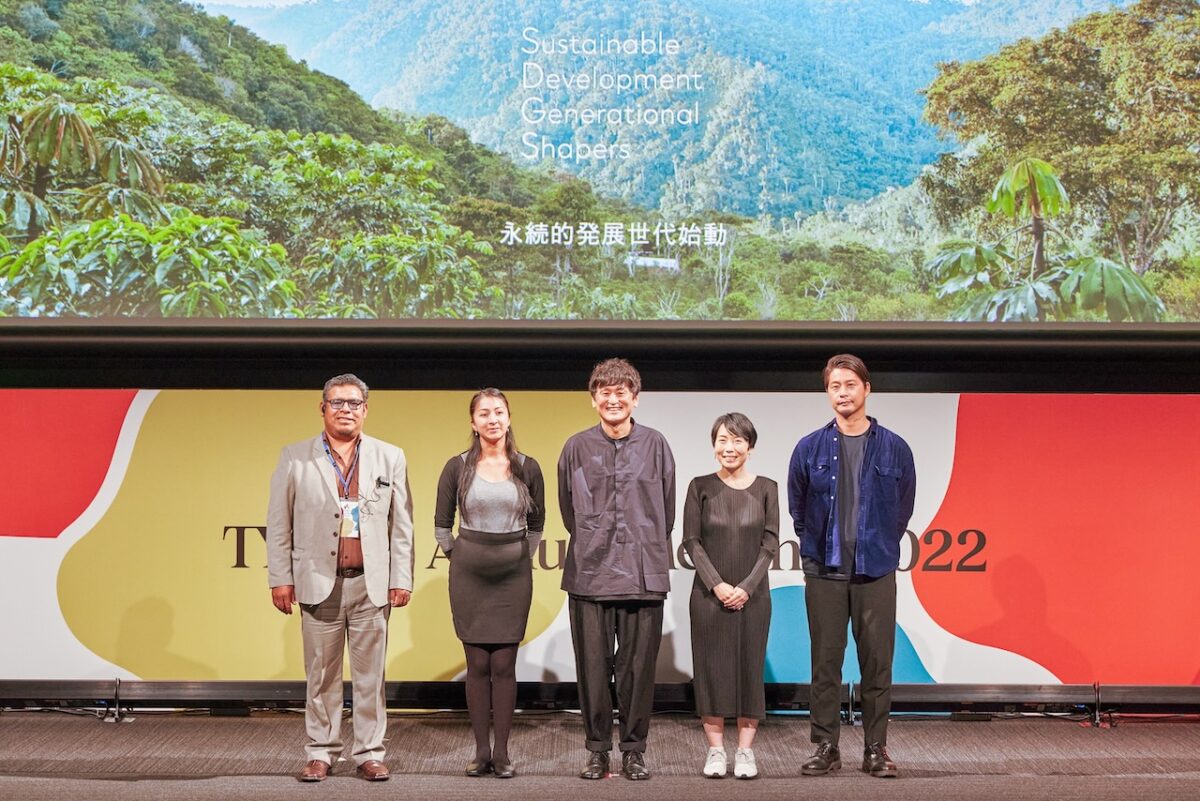
Masashi Oda, a co-owner of Tokyo-based roastery Raw Sugar Roast, said he started buying Bolivian coffee after he received a touching letter from Juan. Masashi said, “The letter brought home how hard Juan was working to overcome financial difficulty. Nevertheless, his green coffee arrived in vacuum-sealed packaging, which is costly. It showed just how much he cared about delivering his coffee in the best condition possible. That, in turn, gave me a strong sense of mission to serve delicious coffee.”
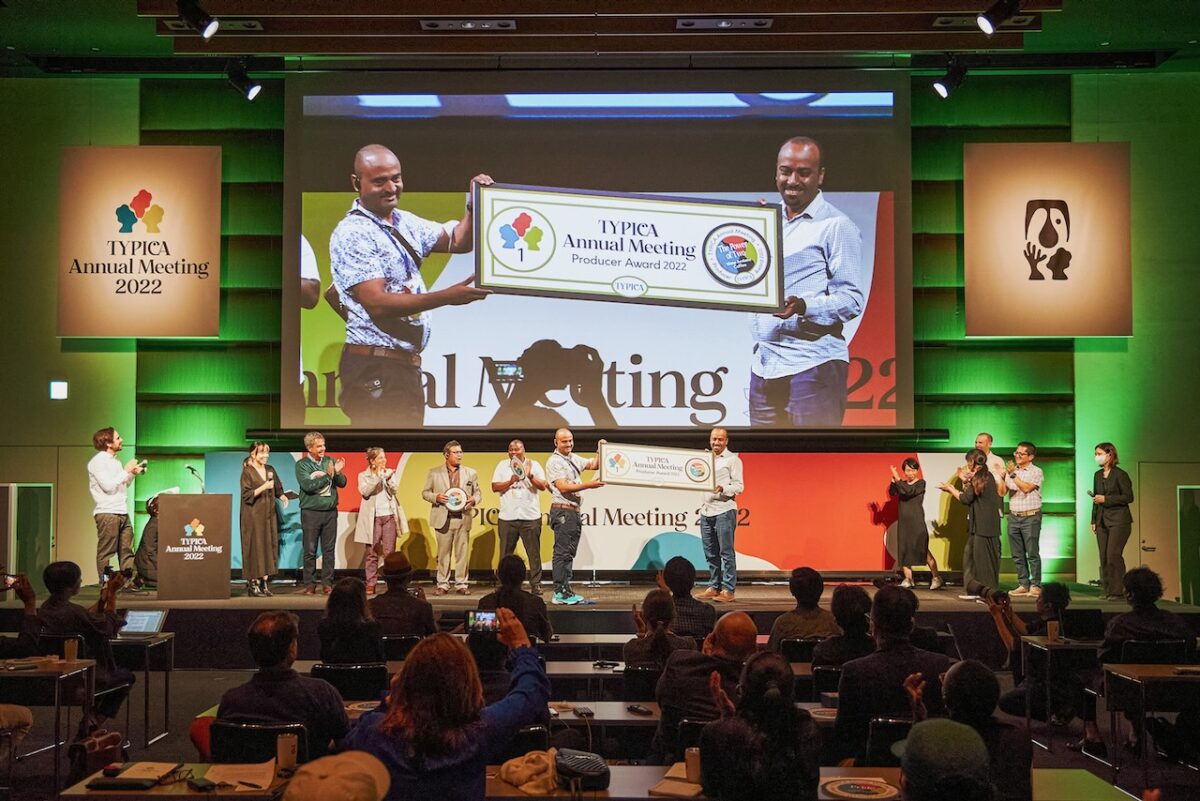
The main program of the conference was the Producer Award. 18 coffee producers talked about how their coffee journey started, their ambitions, and vision for the future. Audiences were asked to cast their vote for one producer whose talk particularly struck a chord with them, or for the producer whose coffee tasted the best. Out of more than 100 submissions, Wete Ambela Coffee in Ethiopia garnered the most votes and won the top prize. Video of all 18 presentations will be released at a later date.
Michal Molcan, the founder and editor-in-chief of independent specialty coffee magazine Standart, said the event was a great opportunity to shine a light on producers, rather than on baristas or roasters. He said he is looking forward to seeing how TYPICA will build on this experience next year as the company strives toward sustainable development.
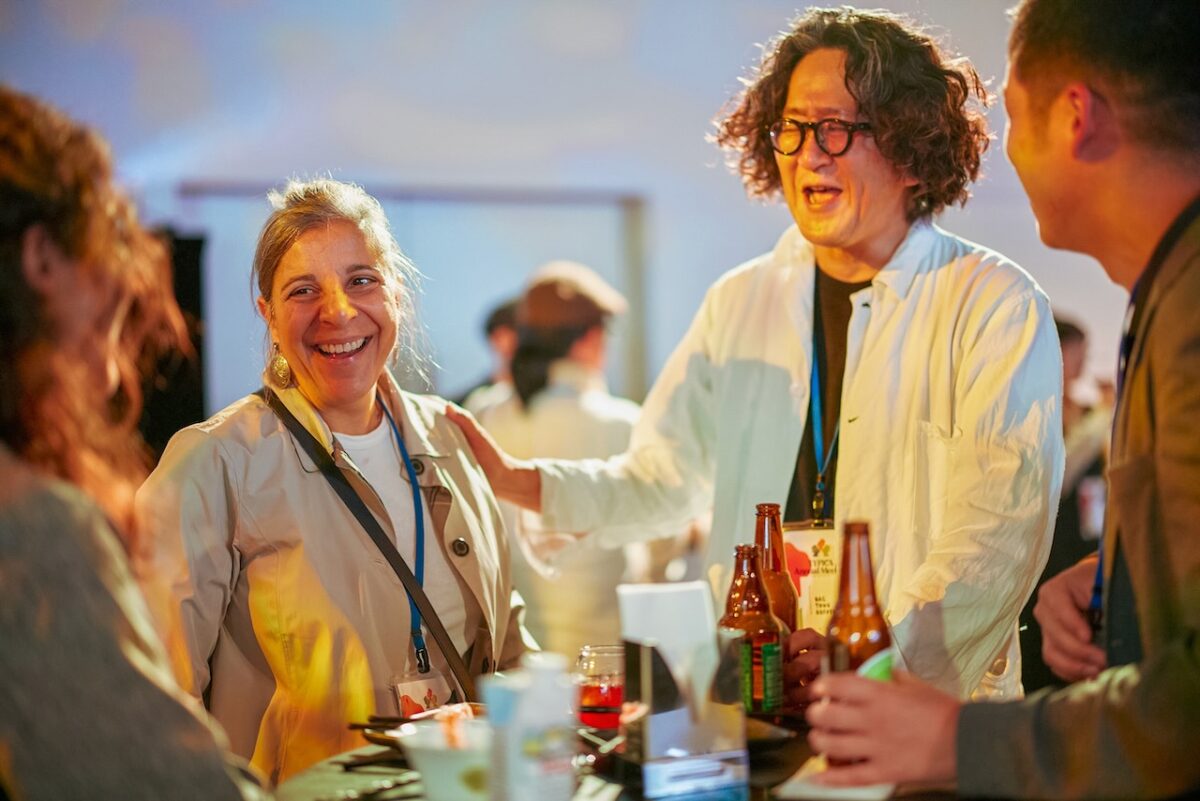
Community Dinner proceeded in a friendly and light-hearted atmosphere. Jovin Thomas Mainam, who grew up in a family of coffee farmers, is the leader of the quality control team at Tanzania-based Acacia Hills Coffee Estate. Giving a speech at the banquet, he said it was unbelievable to see Leon, the head of Acacia Hills, speak at the podium at this event. “It felt like a dream come true,” Jovin said. “I hope this dream-like moment will continue tomorrow and the day after tomorrow. I will keep on making good coffee with big motivation.” Jovin ended his speech amid roaring applause.
Originally written in Japanese by Takuya Takemoto
Photos by Kenichi Aikawa